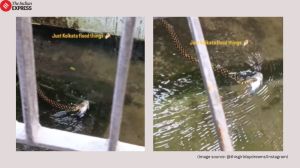Chevron, BP, Arctic Slope enter lease deal
Two oil companies and the Inupiat Eskimo-owned Arctic Slope Regional Corp said last Thursday they have made final a lease agreement for expl...

Two oil companies and the Inupiat Eskimo-owned Arctic Slope Regional Corp said last Thursday they have made final a lease agreement for exploration and development of Arctic Slope’s oil and gas interests within the Arctic National Wildlife Refuge (ANWR).
The deal, between Chevron USA Inc, British Petroleum unit BP Exploration (Alaska) Inc and Arctic Slope, provides for a long-term lease agreement for development of acreage near the Inupiat village of Kaktovik. Terms of the agreement were confidential, according to a statement released by Chevron.
Arctic Slope owns subsurface oil and gas mineral rights to 92,000 acres on the ANWR coastal plain. That Native-owned acreage, about 100 miles (160 km) east of the Prudhoe Bay oil field, was the site of an exploration well drilled by Chevron and BP in the winter of 1984-85. It was the only onshore well ever drilled within the wildlife refuge’s boundaries. Results of the exploratory drilling have been confidential.
Chevron, the operator, and partner BP have hadthe area under lease since 1984. The agreement announced on Thursday makes terms of the arrangement final, said BP spokesman Paul Laird.
The oil industry and its supporters, including the North Slope’s Inupiat Eskimos, believe the Arctic wildlife refuge’s coastal plain offers some of the nation’s best chances for a major new onshore oil discovery.
But environmentalists, the Clinton administration and Athabaskan Indians who live in and near the wildlife refuge oppose ANWR oil development. Except for the single Kaktovic well, known as the KIC No. 1 well, drilled by Chevron and BP, ANWR development has been blocked.
Jacob Adams, president of Arctic Slope, said potential for oil from ANWR is high. He referred to a recent US Geological Survey study that increased estimates of oil in the refuge’s coastal plain. That survey "confirmed that the Arctic National Wildlife Refuge is indeed an area with important energy resource potential, and have endorsed the widely held view that it is one of the few remainingareas in the domestic United States for significant hydrocarbon reserves," Adams said in a news release.



- 01
- 02
- 03
- 04
- 05




























